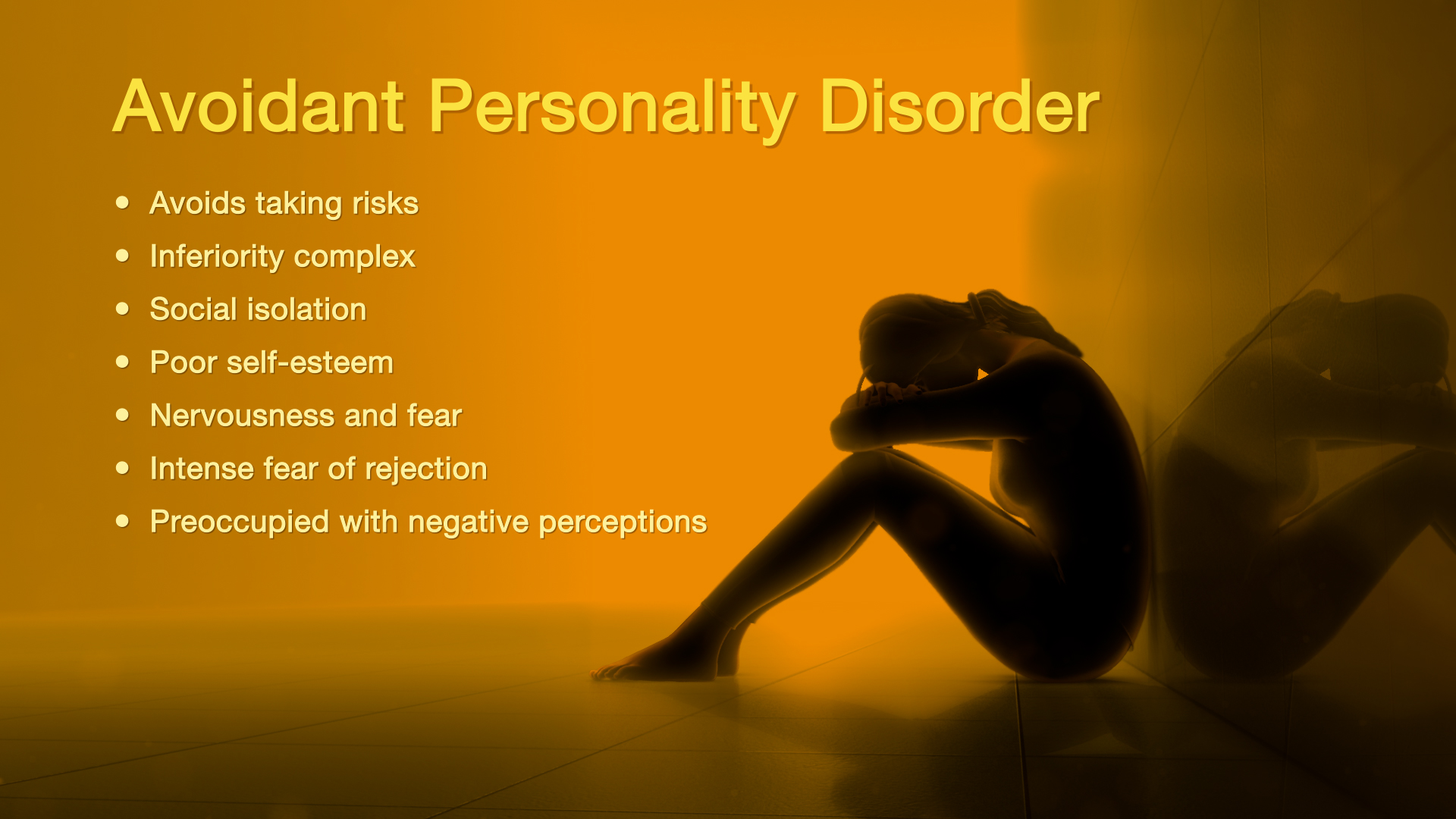A person who is often socially awkward and is hypersensitive to rejection and criticism may be suffering from a disorder known as avoidant personality disorder. This disorder belongs to a group of disorders known as anxious personality disorders. People suffering from avoidant personality commonly suffer from poor self-esteem, nervousness, and fear. These feelings make them very uncomfortable socially, leading them to avoid group activities and contact with others. Their fear of rejection and humiliation is so strong that they prefer isolation to being rejected in a relationship. It affects men and women equally. It usually begins in childhood and continues into adulthood.
Symptoms
The most common signs and symptoms in people suffering from this disorder are:
- Either avoiding eye contact or staring too intently
- Oversensitivity and intense fear of criticism and disapproval
- Extreme anxiety and fear in social gatherings and in relationships
- Shyness and awkwardness
- Very few, if any, close friends
- Avoidance of activities at work
- Unwillingness to interact with others
- Feelings of inadequacy
Causes
The exact cause of avoidant personality disorder is unknown. Professionals believe the cause to be a combination of environmental as well as genetic factors. Early childhood experiences in which children do not receive sufficient love and affection or receive intense criticism, abuse or neglect often contribute to the development of this condition.
Treatment
The primary treatment for avoidant personality disorder is usually psychotherapy, like in most other personality disorders. Psychotherapy often helps to build stronger relationships and improve self esteem and confidence. In more serious conditions of avoidant personality disorder a person may be suffering from anxiety and depression. To treat these symptoms, medications may be prescribed. The symptoms of avoidant personality disorder can commonly be treated and a person can live a normal lifestyle if it is diagnosed and treated as early as possible.
- Difficulty in making friends
- Lack of changing facial expressions
- Inability to infer the feelings, thoughts and emotions of others
- Unusually sensitive to noises, taste, odours, touch and visual stimuli
- Inflexible and dependent on routines
Treatment can usually improve the long term outlook for people suffering from asperger syndrome. When behavioral, educational and social support is provided, people suffering from this condition can often control the social and communication challenges they face and can lead happier and more productive lives.
Disclaimer: The information in no way constitutes, or should be construed as medical advice. Nor is the above article an endorsement of any research findings discussed in the article an endorsement for any of the source publications.









